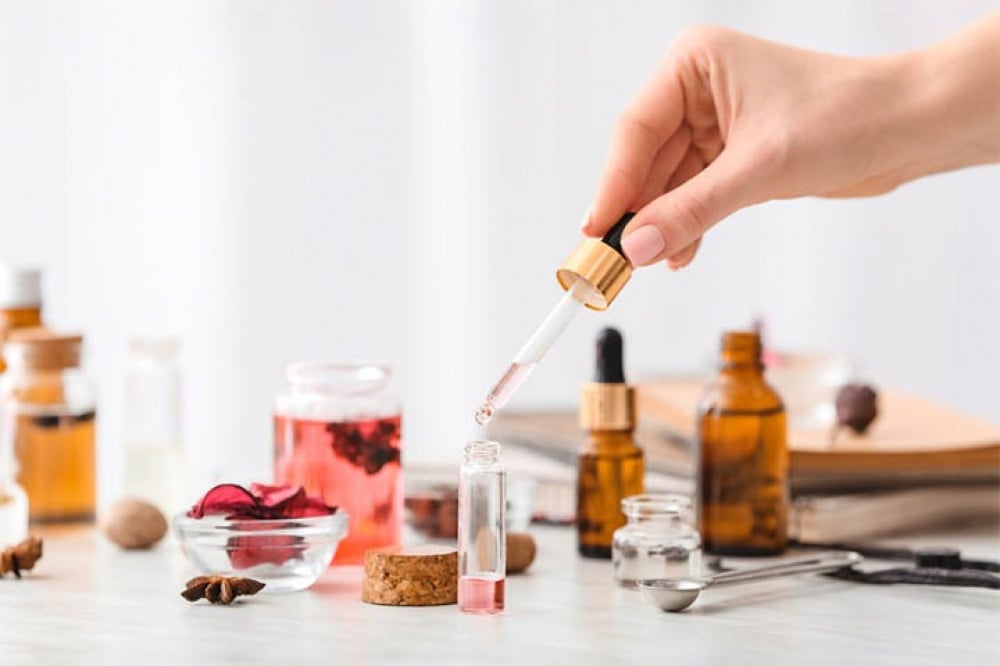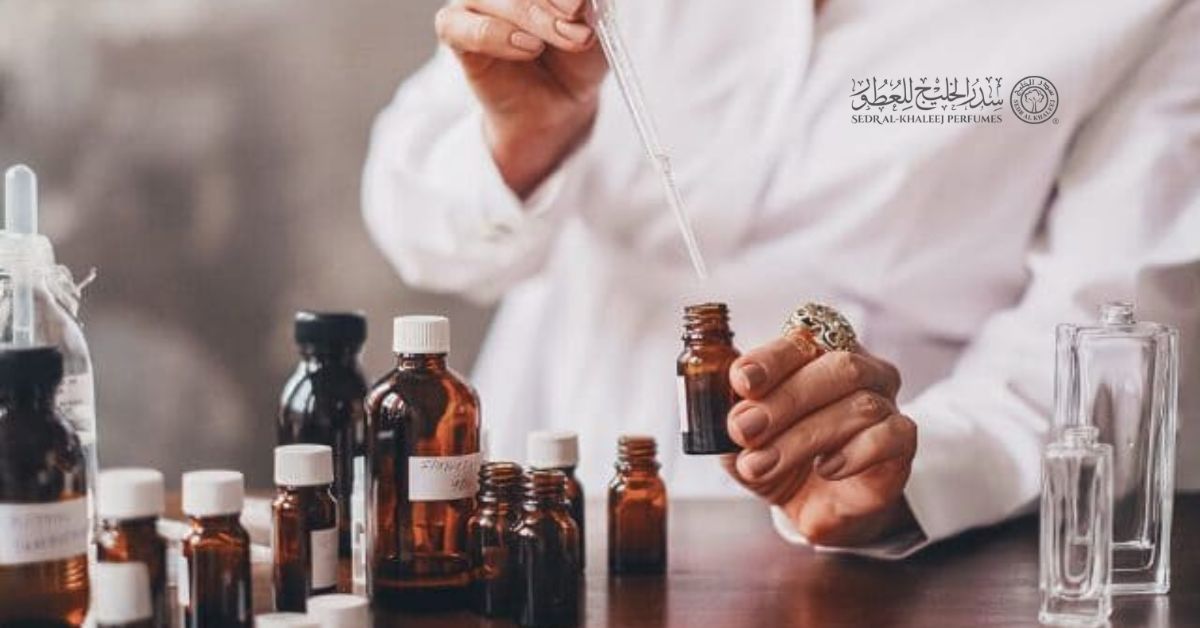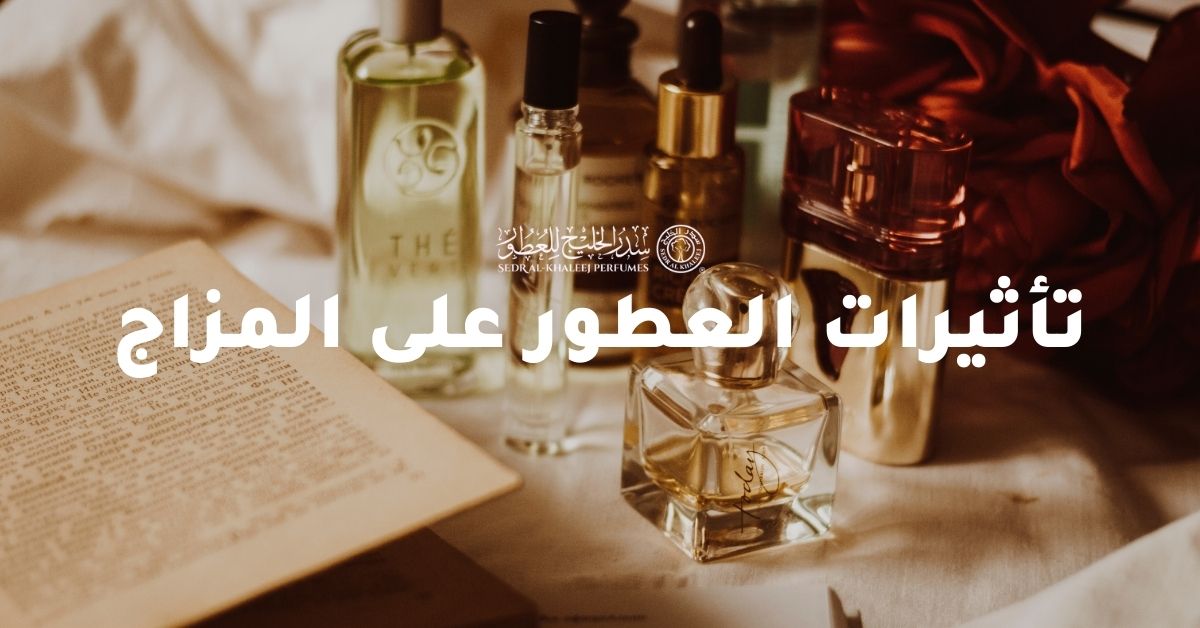are considered perfume is an art of beauty and distinction, playing an undeniable role in our daily lives. It's not just about leaving a smell they are an integral part of our personal expression personal expression and our identity. Perfumes have the power to transport us to different worlds, where art and taste meet.
تأثير العطور يتعدى المظهر الخارجي، حيث يمتد إلى التأثير العميق على مزاجنا وحالتنا النفسية. تكمن أهمية العطور في القدرة على إحداث تأثير إيجابي على حواسنا وعقولنا.
Advances in Perfumery
Over time, the perfume industry has undergone remarkable developments. The history of perfume takes us on a journey through the ages, where originality meets creativity. With the development of technology, modern methods of extracting raw materials have been introduced, improving the quality and stability of perfumes.
But advances in perfumery is not limited to the historical and traditional aspect only. It also extends to modern technology in manufacturing processes, where the latest technology is used to extract raw materials. This advancement not only enhances the quality of perfumes and stability, but also opens the doors of creativity for more sensory and unique experiences.
In terms of design, the world of perfumery is undergoing a radical shift in perfume bottle design. Modern design is characterized by boldness and creativity, and today's perfume bottles are not just a means of containing a fragrance, but a piece of art that reflects the personality of the fragrance and the uniqueness of the brand.
In the field of packaging and packaging, the latest trends are emerging to meet the expectations of today's consumers. Sustainability and aesthetics are emphasized in packaging, with the use of eco-friendly materials and attractive designs that add value to the the fragrance experience. These developments reflect the industry's willingness to innovate and respond to modern customer expectations.
With advances in these fields, time and space are embodied in every drop of our perfume our perfume. which makes the the experience of wearing perfume even more unique and special in a challenging and changing world.

The Impact of Technology on the Quality and Persistence of Fragrances
Technological advances have greatly improved the quality of fragrances in a number of ways:
Using modern technologies to extract raw materials:
Advances in natural ingredient extraction technologies are opening up new possibilities for the use of pure, high-quality raw materials.
Technologies such as extraction CO2 extraction and modern distillation contribute to obtaining essential oils and high quality ingredients.
Optimize fragrance formulas:
Technology allows for better analysis and understanding of aromas and ingredient interactions, enabling perfumers to develop complex and unique formulas.
Precise control of fragrance formulations makes it possible to achieve consistent and balanced scents.
The impact of technology on the persistence of fragrances:
Developing fragrance stabilizing compounds:
- Advances in organic chemistry allow for the production of perfume stabilizing compounds that help the scent last longer on the skin.
- These compounds allow odors to continue to be released gradually instead of fading quickly.
Packaging and distribution technology:
- Encapsulation technology can be used to keep fragrances airtight, preventing evaporation of scents and preserving their purity.
- Modern dispensing techniques involve the design of fine atomizers that distribute the fragrance evenly over the skin.
Design and packaging trends:
The modern design of perfume bottles:
- Modern design focuses on making perfume bottles beautiful pieces of art that reflect the brand's identity.
- Designs can include artistic details, innovative shapes, and the use of luxurious materials.
The latest packaging trends:
- The focus on packaging is testament to the sustainability of materials and attractive designs.
- Packaging can include eco-friendly materials and recyclable designs, promoting environmental awareness.
Key Ingredients in Perfumery
Perfumery is a diverse and complex industry, and in this context, key ingredients play a key role in determining the identity and appeal of a fragrance. Let's take a closer look at two of the most prominent ones: Essential oils and natural versus synthetic materials.
Essential oils
in the world of perfumeryPerfume is not just a scent, it is the embodiment of art and creativity. Essential oils are the true soul of perfume, carrying the task of creating a unique and incomparable scent. In this context, let's explore:
The role of essential oils in perfume composition
Identifying the essential oils for the layers of a fragrance is an important step in making the final scent unique and distinctive. Here's how to identify the essential oils for each layer:

Top layer (front):
This layer is the first thing a person smells when spraying the perfume.
Use light and refreshing essential oils, such as lemon, bergamot, lavender, or light citrus oils.
Light touches of herbal oils such as peppermint or ginger can also be added.
Middle class (heart):
This layer is the most stable and influential part of the final odor.
Use essential oils that represent flowers and medium fruits, such as rose, jasmine, lily, or fruit oils such as strawberry and apple.
Bottom layer (base):
This layer adds stability and warmth to the scent, and is clearly visible after some time.
Use heavy and warming essential oils, such as vanilla, incense, amber, and sandalwood.
Hints of spicy oils like clove or saffron can be added for a unique twist.
The most popular oils used in perfumes
The most popular essential oils used in the world of perfumery represent a rich variety of ingredients that lend a special splendor to the composition of perfumes. Here are some of the most prominent oils:
Rose oil
Used to create romantic floral notes.
It is considered one of the most luxurious and opulent oils.
Frankincense oil
Enhances the warm and sensual character of a fragrance.
It has a unique aroma that blends amber and spices.
Vanilla oil
It adds a sweet and warming touch to fragrances.
Reflects femininity and delicacy in the composition of the scent.
Lemon oil
It is used to create a refreshing and energizing aroma.
It is a perfect complement to fruity and green fragrances.
Oud oil
It adds a luxurious and rich touch to fragrances.
Gives the scent depth and warmth.
Lavender oil
It is used to create a calming and relaxing scent.
It is considered a versatile oil.
Natural vs. synthetic materials
In the world of modern perfumerythe balance between natural and synthetic ingredients is vital for achieving the perfect scent and good longevity. Here are some important points about this:
Use natural ingredients:
- The use of natural ingredients gives fragrances depth and complexity. Such ingredients include essential oils extracted from flowers, fruits, and woods.
- Natural ingredients enhance the sensory response and give the fragrance a natural and authentic feel.
Utilize synthetic ingredients:
- Synthetic ingredients give fragrances more staying power and better persistence.
- More unique and complex scents can be achieved through the use of molecular engineering techniques, which allow for the creation of ingredients that cannot be obtained naturally.
Balance and innovation:
- Innovation in perfumery lies in the ability to strike an effective balance between natural and synthetic ingredients.
- This balance allows fragrances to be innovative and sustainable, while capitalizing on the high quality of natural ingredients and the good stability of synthetic ingredients.
Responding to environmental needs:
Synthetic ingredients can be used to reduce reliance on natural resources, preserving biodiversity and supporting the sustainability of industrial practices.
Consumer trends in fragrance selection
Niche fragrances
Niche fragrances These are one-of-a-kind luxury fragrances that are produced in limited quantities and represent luxurious and distinctive fragrance experiences. The world of niche perfumery is characterized by a focus on art and innovation, different from the larger mass perfumery industry.
Niche fragrances are characterized by several aspects:
Unique composition:
- The ingredients are carefully selected to create a unique formula.
- Rare and luxurious ingredients are used, such as rare flowers, fine woods, and expensive essential oils.
Innovation and creativity:
- In the world of nish, the perfumer is an innovator, able to exceed expectations and deliver new and innovative aromatic experiences.
- Advanced manufacturing techniques can be used to achieve unique and complex scents.
Exclusivity and uniqueness:
- The production quantities of nish perfumes are limited, making them unique and exclusive pieces.
- These fragrances can be an expression of personal taste and the desire to own something exceptional.
Stories and philosophy:
- Niche perfumes often carry stories and expressive philosophy, as the perfumer tries to convey their artistic vision through scent.
- Fragrances can be part of an artistic experience that expresses identity and personality.
The difference between nish perfumes and common perfumes

Composition and quality:
- Niche fragrances are often based on unique and complex formulas, where rare and luxurious ingredients are used.
- Great attention is paid to the quality of the ingredients in Niche perfumes, resulting in deeper and more complex aromatic experiences.
Innovation and creativity:
- Niche fragrances are characterized by innovation and creativity, where traditional boundaries are pushed to create unique and innovative scents.
- Niche fragrances tend to use unconventional ingredients and advanced manufacturing techniques to achieve exceptional experiences.
Technical communication:
- Niche perfume production is an art, where perfumers engage in artistic experiments to communicate a unique message through scent.
- Emphasis is placed on artistic communication and personal creativity, allowing the fragrances to speak more deeply to the senses.
Value and exclusivity:
- Niche fragrances are often more expensive due to the use of rare ingredients and advanced manufacturing processes.
- Attention to detail and quality is a sign of exclusivity, and Niche fragrances offer unique experiences for individuals.
Sustainability of perfumes
The concept of eco-friendly fragrances:
- Eco-friendly fragrances are those that are made using natural and eco-friendly ingredients.
- These fragrances are characterized by a commitment to sustainability at all stages of the production process, from ingredient selection to packaging.
Sustainability-based fragrance ingredients:
- Sustainable fragrances emphasize the use of natural, sustainable ingredients that are compatible with the concept of organic farming and biodiversity conservation.
- These ingredients can include sustainable essential oils and plant extracts that have been used sustainably.
Use natural ingredients:
- It encourages the use of natural ingredients that come from sustainable sources instead of synthetic chemicals.
- This can be as simple as replacing synthetic preservatives with essential oils that protect the fragrance in a natural way.
Sustainable manufacturing processes:
- Modern technology in manufacturing processes includes the use of renewable energy resources and waste minimization techniques.
- It seeks to improve production efficiency and minimize the environmental footprint of the fragrance industry.
How to choose the right fragrance
Features of different fragrances
Vase:
- It's delicate and feminine.
- It contains floral ingredients such as rose and jasmine.
- Suitable for formal occasions and everyday use.
Wooden:
- Reflects warmth and strength.
- It contains woody ingredients such as patchouli and sandalwood.
- Suitable for fall and winter seasons and evenings.
Fruity:
- It adds a touch of freshness and vitality.
- It contains ingredients from fruits such as oranges and berries.
- Suitable for mornings and warm days.
Choosing the right fragrance for your lifestyle:
Based on activities:
- For sporty times, opt for light and fresh fragrances.
- For formal occasions, choose floral or woody fragrances.
Based on the season:
- In summer, fruity and fresh fragrances are preferred.
- In winter, opt for warm and woody fragrances.
based on personality:
- For bold personalities, choose rich and powerful fragrances.
- For delicate personalities, opt for light floral fragrances.
Tips for lasting fragrance longevity
Choose the right zones:
- Apply the fragrance to pulse points such as the wrist and neck.
- Spraying the fragrance on the hair improves the longevity of the scent.
fixing the smell:
- Use a moisturizing cream before applying perfume.
- Use highly concentrated versions of fragrances.
Try before you buy:
- Before buying a fragrance, try it on your skin to see how it reacts.
- Choose fragrances that meet your preferences and suit your daily routine.






Leave a comment
All comments are moderated before they are published.
This site is protected by hCaptcha and the hCaptcha Privacy Policy and Terms of Service apply.